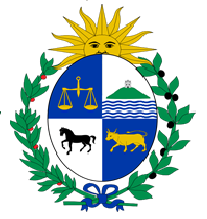Montevideo, founded by the Spanish in 1726 as a military stronghold, soon took advantage of its natural harbor to become an important commercial center. Claimed by Argentina but annexed by Brazil in 1821, Uruguay declared its independence four years later and secured its freedom in 1828 after a three-year struggle. The administrations of President Jose BATLLE in the early 20th century launched widespread political, social, and economic reforms that established a statist tradition. A violent Marxist urban guerrilla movement named the Tupamaros, launched in the late 1960s, led Uruguay's president to cede control of the government to the military in 1973. By yearend, the rebels had been crushed, but the military continued to expand its hold over the government. Civilian rule was not restored until 1985. In 2004, the left-of-center Frente Amplio Coalition won national elections that effectively ended 170 years of political control previously held by the Colorado and Blanco parties. Uruguay's political and labor conditions are among the freest on the continent.
Uruguay is a presidential republic.
Source: CIA World Factbook
Members:
Resources
Displaying 6 - 6 of 6Decreto Nº 333/004 - Establece los criterios técnicos básicos a aplicar en el manejo y conservación de suelos y aguas.
El presente Decreto establece los criterios básicos a aplicar en el manejo y la conservación de suelos y aguas, con el objeto de asegurar un uso más racional de lso recursos, aparejando al mismo tiempo mayores rendimientos productivos.La primera parte del Decreto está dedicada al uso y conservación de los suelos. Como norma básica, toda práctica agrícola deberá mantener o aumentar la productividad de los suelos, evitándose la erosión y degradación de las propiedades físicas, químicas o biológicas.


